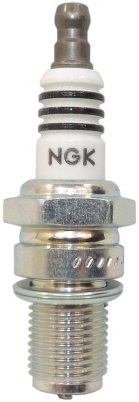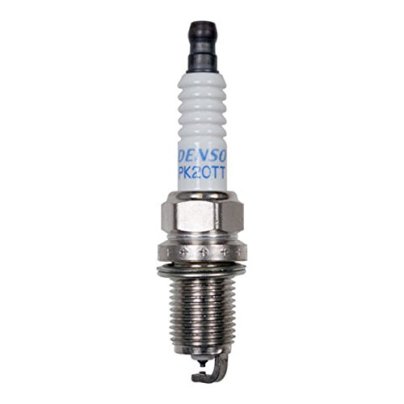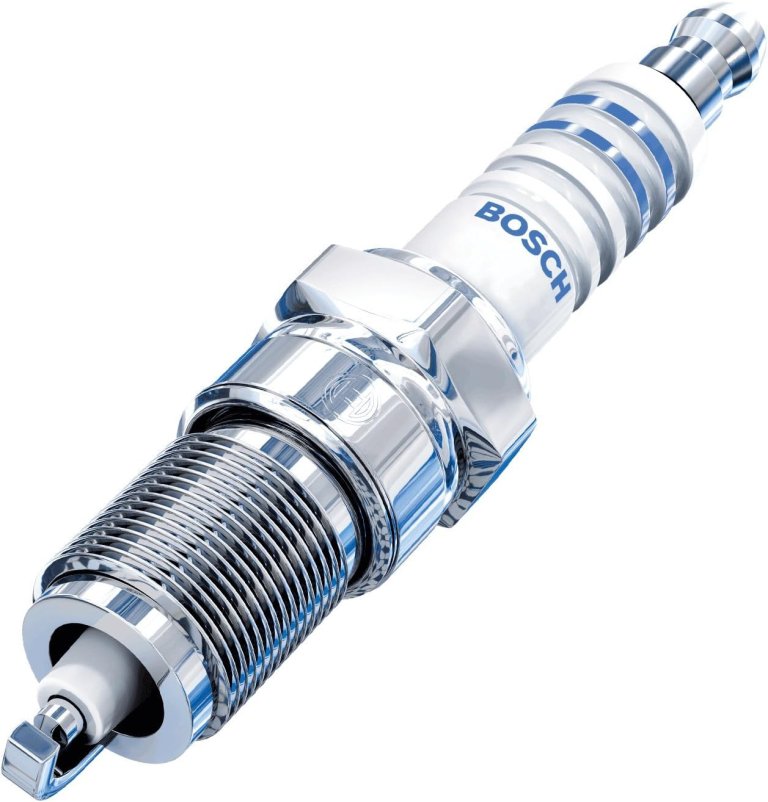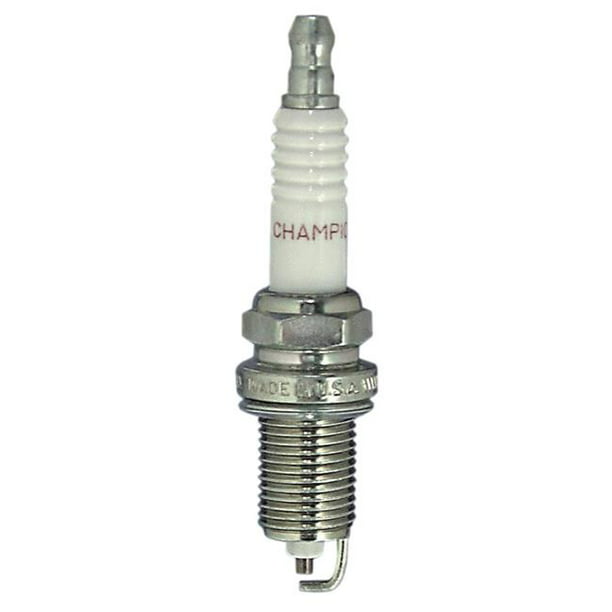We may earn revenue from the products available on this page and participate in affiliate programs. Learn more ›
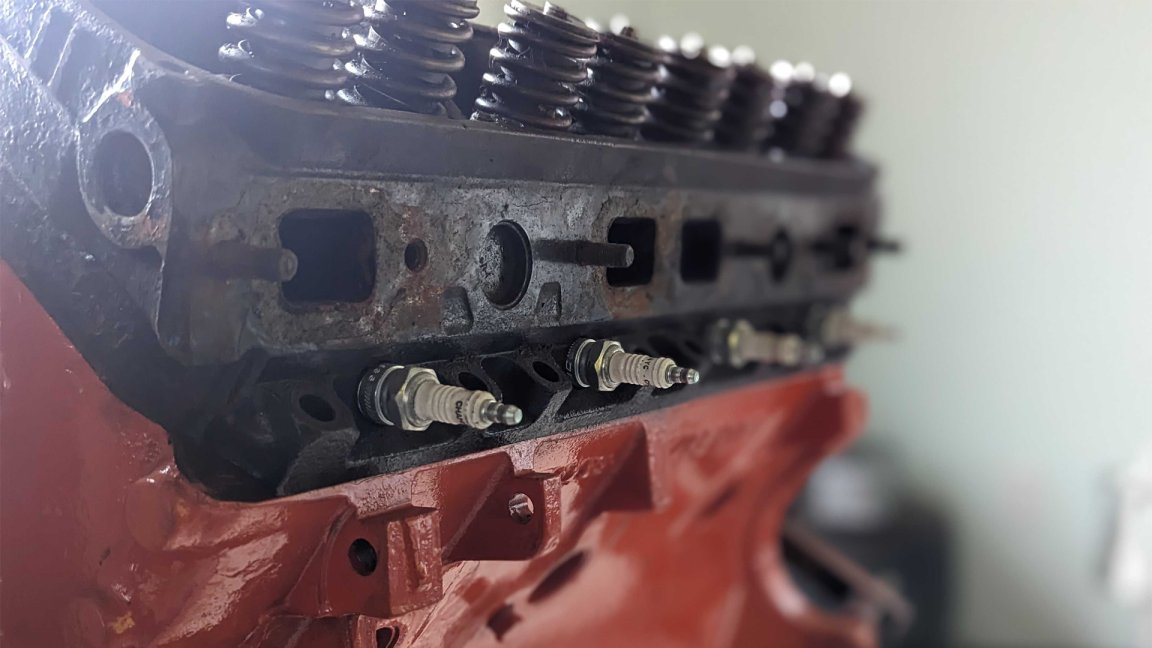
Many car owners take the mighty spark plug for granted. It’s a simple yet crucial device that’s responsible for delivering the spark that ignites the fuel mixture in your engine. There’s more to it than that, though. Your engine needs a spark plug that offers the right temperature, gap, and fit to ensure the best performance of your engine. Once you figure out those basic details, you need to find out what’s the best spark plug within those parameters. That’s the part we’re here to help you sort out with our recommendations for the best spark plugs.
Summary List
- Best Overall: NGK Iridium IX
- Best Value: Denso Platinum
- Premium Pick: Bosch Copper
- Most Durable: Bosch Copper with Nickel
- Best Value Runner-Up: Champion Copper
Our Methodology
Spark plugs are crucial to the safe, clean, and trouble-free operation of any car. Though modern spark plugs are incredibly long-lasting, reliable, and come in a huge range of predetermined fitments, they will still need to be changed eventually. So we researched all of them to find the best ones to choose for your car, and made decisions based on that research and our personal experience with these brands of spark plugs.
Best Spark Plugs Reviews & Recommendations
Best Overall
NGK Iridium IX Spark Plugs
Check Latest PricePros
- A good design that is unlikely to misfire or malfunction
- Superb performance and efficiency
- Long lifespan
Cons
- On the pricey side for a spark plug replacement
Best Value
Denso Platinum Spark Plugs
Check Latest PricePros
- Excellent price
- Durable, double platinum tip for enhanced performance
Cons
- Gap is occasionally set incorrectly
- Performance isn’t on par with iridium spark plugs
Premium Pick
Bosch Copper with Nickel Spark Plug
Check Latest PricePros
- Long lifespan
- May increase gas mileage and boost performance in certain vehicles
Cons
- Factory set gap may not be correct
- May not fit all vehicles listed in the specs
Most Durable
Bosch Copper with Nickel Spark Plug
Check Latest PricePros
- Excellent durability
- Pre-gapped for many applications
Cons
- Compatibility must be double-checked
Best Value Runner-Up
Champion Copper Plus Spark Plug
Check Latest PricePros
- Affordable
- Great Performance for older engines
Cons
- Not optimal for many newer engines
Our Verdict
For a high-quality spark plug, consider the NGK 6619 Iridium IX Spark Plugs, featuring excellent performance, power, efficiency, and reliability. Or, choose the Denso 4504 PK20TT Platinum Spark Plugs, an affordable platinum spark plug that delivers excellent durability and performance.
What To Consider When Choosing Spark Plugs
Key Features
Heat Range
Keeping a spark plug at the optimal heat range is extremely important to performance and engine health. To cool and the plug will foul up and fail to run properly, and too hot will lead to detonation or pinging. Which heat range will work for your engine depends on a few factors, with boost and compression being the biggest players in most cases. For factory vehicles, using the heat range suggested by the plug manufacturer will usually suffice. However, those who have modified their vehicle will likely use that suggestion as a starting point, using different combinations of plug heat ranges until they find what works.
Electrode Material
Spark plugs feature a center and side electrode to create the spark. The center electrode almost always features a copper core with a nickel, iridium, or platinum coating on the tip. The coating is there to protect the electrode because it is more resistant to the conditions inside the combustion chamber, effectively extending plug life. A lot will determine which material is best for your vehicle, but iridium or platinum is generally better for modern commuting vehicles. Nickel, often called copper for simplicity, plugs are better for older and higher-performance applications. This is because copper plugs, while plagued by the shorter life span, can throw a stronger spark and maintain cooler temperatures.
Thread Pitch and Reach
Not all spark plugs are the same dimensions because not all engines place the same demands on these aspects of the plug. You want to make sure that whatever plugs you consider fit what the vehicle calls for. Thankfully, these are standardized, with only a few options to select from, and all you need to do is match thread pitch and reach to ensure a plug will physically work for your engine.
FAQs
You’ve got questions. The Drive has answers.
If you are wondering how to tell whether your spark plugs are operating well before problems arise, look at their color. Usually, when the spark plug is a light tan or gray color, that should tell you that it is running at optimum temperature. In other words, your vehicle’s engine is in good condition.
This depends on the quality of spark plugs you have in your car. Top-quality spark plugs will last longer than lower-quality plugs. Most mechanics recommend you change your copper core spark plugs every 30,000 miles or every 50,000 miles for iridium core spark plugs. This interval may be shorter if your engine isn’t in top condition, so it’s vital to inspect your spark plugs for premature wear and change them accordingly.
When your vehicle has a faulty spark plug, it can cause the check engine light to illuminate, signaling an issue. In some instances, the check engine light may even be flashing instead of a solid light. When the warning light appears, it is essential that you or a professional mechanic look into the cause.
You may notice the following symptoms if your spark plugs need to be replaced: hesitation or backfiring during acceleration, decreased acceleration, rough idle, spark plug wires charred on the end that goes onto the plugs, a significant drop in fuel economy, and difficulties starting your engine. If your ride doesn’t run as well as it usually does, and you suspect it’s attributed to bad spark plugs, inspect the plugs yourself or have a mechanic do it.
